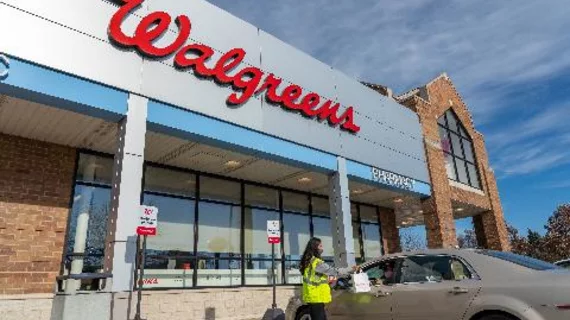Walgreens-backed VillageMD acquires Summit Health in $9B deal
VillageMD, which is majority-owned by Walgreens Boots Alliance, is acquiring Summit Health in a deal valued at $8.9 billion.
The deal was first rumored a week prior in media reports. Summit Health is a large medical group with more than 340 practice locations, offering primary, specialty and urgent care. VillageMD is Walgreens’ primary care center subsidiary. The transaction includes investments from Walgreens and an affiliate of Evernorth, which is a subsidiary of Cigna Corporation.
The combined entity will create a multi-payor platform to deliver care to patients, leveraging VillageMD’s experience in expertise in value-based care and Summit Health’s expertise in multispecialty, connected care, according to a press release.
The move comes after Walgreens recently committed $392 million to acquire the remaining stake in CareCentrix, a post-acute care company that Walgreens had previously acquired a majority ownership in. VillageMD and CareCentrix are both under the company’s Walgreens Health business, which was created late last year.
Together, Summit Health and VillageMD will have more than 680 local providers in 26 markets.
“Summit Health-CityMD joining VillageMD is transformational for our U.S. Healthcare segment and reinforces our intent to create greater access to quality healthcare across the care continuum,” Roz Brewer, CEO of WBA, said in a statement. “This transaction accelerates growth opportunities through a strong market footprint and wide network of providers and patients across primary, specialty and urgent care.”
Under financial terms of the deal, Walgreens will invest $3.5 billion through an even mix of debt and equity. Walgreens will also remain the majority owner of VillageMD, with approximately 53% ownership.
Evernorth, owned by Cigna, will also be a minority owner in VillageMD. Evernorth was formerly known as Cigna Medical Group until September 2022, when the health services business changed its name to Evernorth Care Group. Evernorth has 20 healthcare centers, offering primary, specialty, urgent care and virtual care, as well as onsite pharmacies, vision and hearing centers, lab services and an outpatient surgery center.
“Our collaboration with VillageMD accelerates our efforts to improve the way care is accessed and delivered,” Eric Palmer, CEO of Evernorth, said in a statement. “Harnessing the breadth of Evernorth’s health services capabilities and connecting them with physicians who provide care in a value-based model like VillageMD, helps more people to get the right care at the right time – driving better health and value.”
Walgreens raised its 2025 fiscal year sales goal to $14.5 billion to $16 billion, up from a range of $11 billion to $12 billion, as a result of the transaction with Summit Health. The pharmacy retailer also raised its adjusted EBITDA target for fiscal year 2023 to $50 million to $25 million, from $240 million to $220 million previously.
The deal is expected to close in the first quarter of 2023, subject to customary closing and conditions under the Hart-Scott-Rodino Antitrust Improvements Act of 1976.

